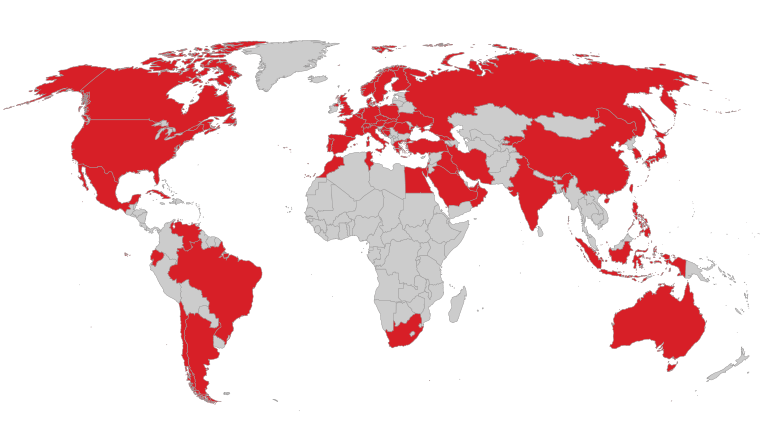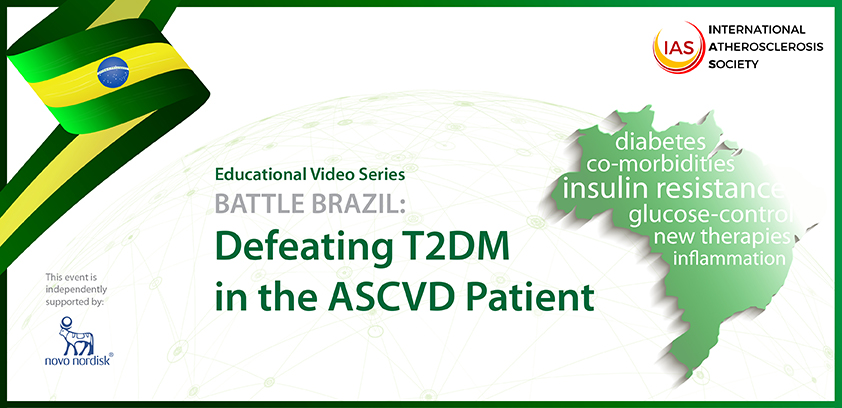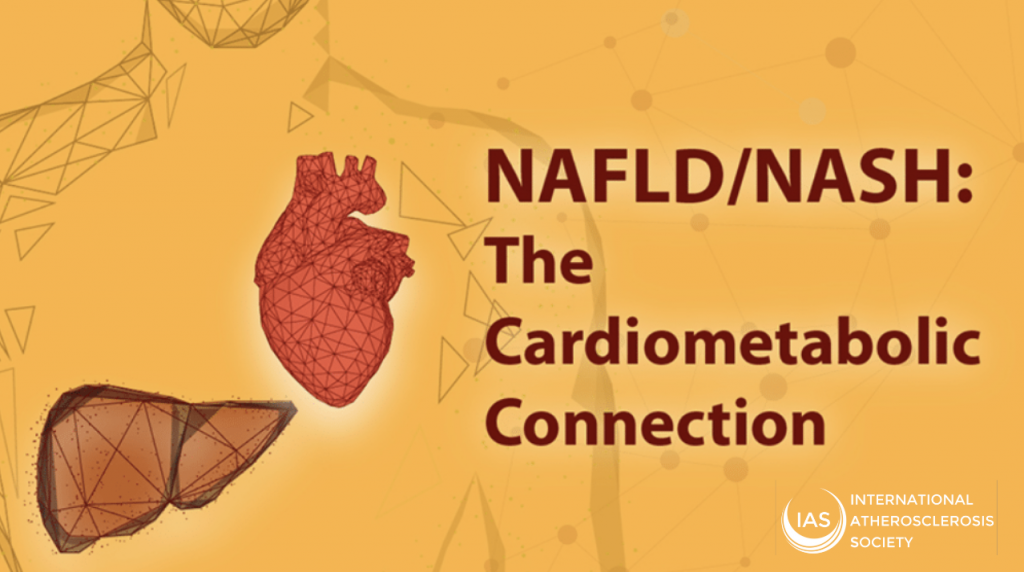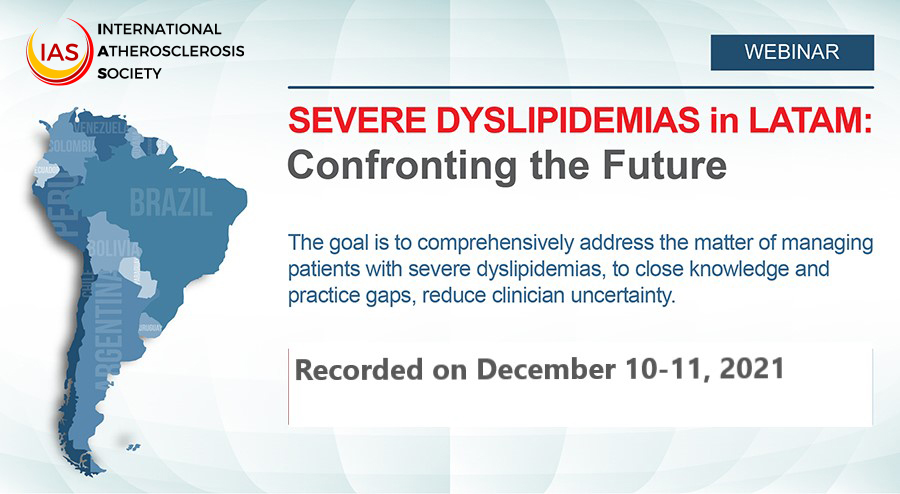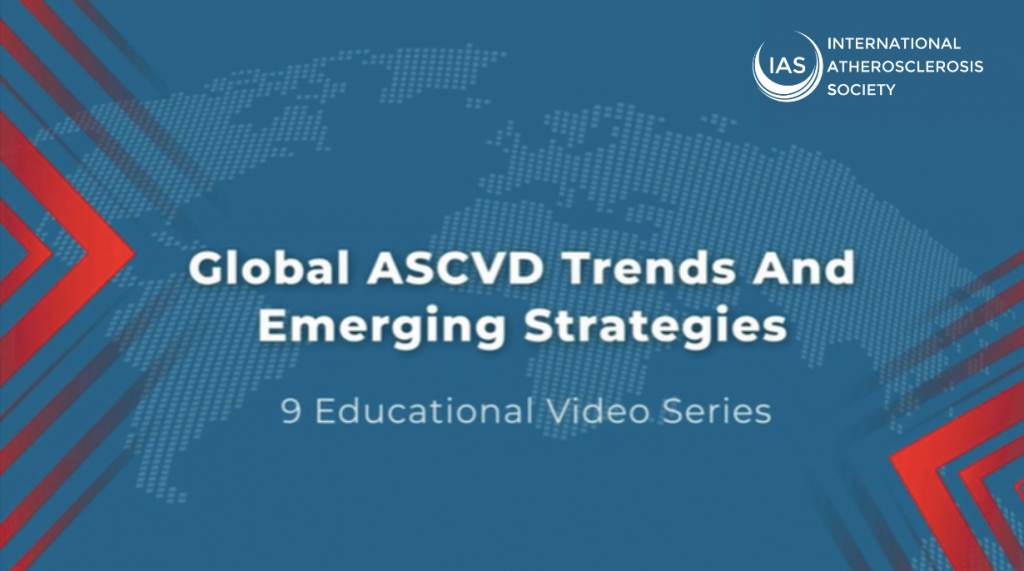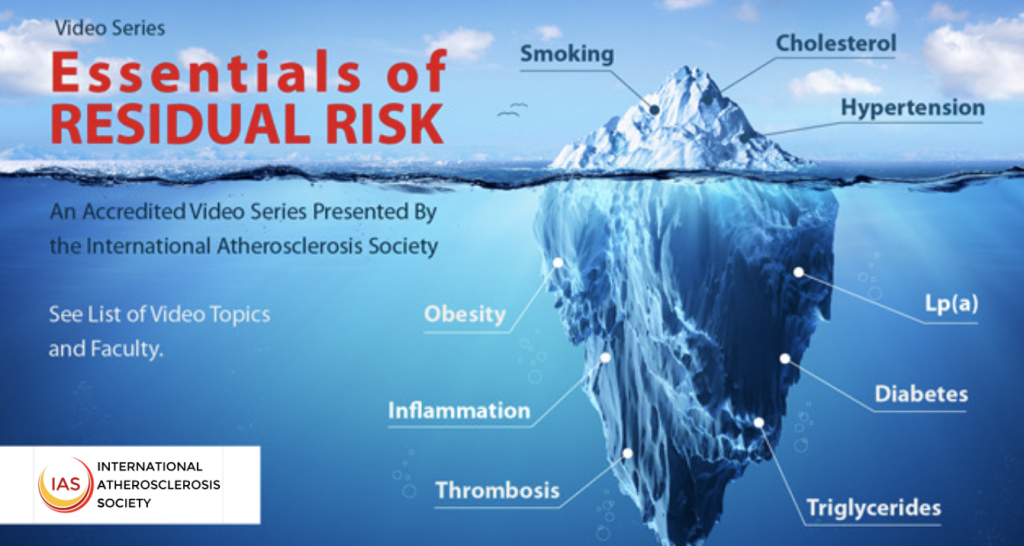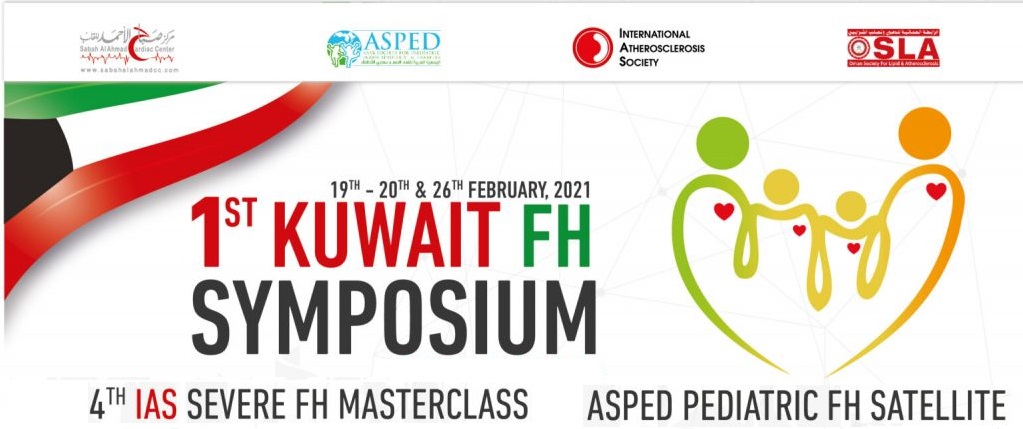WELCOME TO THE
IAS eLearning Center (IASEC)
Here you will find an aggregation of educational resources and activities created by the IAS, or with one of the global Federation of Member Societies (68 worldwide).
Latest Programs
Obesity Management: The Window of Opportunity for Cardiometabolic Clinicians
IAS has created an educational program that comprehensively addresses the management of patients with obesity. This series of pre-recorded videos will close knowledge and practice gaps, reduce clinician uncertainty, and demonstrate how guidelines and evidence can be practically applied. Although this series was developed with a focus on Brazil, it is suitable for a worldwide audience due to the global nature of the obesity epidemic, with nearly half of the world’s population overweight or obese. This continued and significant increase in obesity over the past three decades represents a major public health epidemic that is critical to address.
This series was recorded in English, but is also available with subtitles in Portuguese.
Battle Brazil: Defeating T2DM in the ASCVD Patient
The IAS created a Brazilian focused education program consisting of series of pre-recorded video- based programs to comprehensively address the matter of managing patients with diabetes mellitus (DM) and ASCVD. The goal is to close knowledge and practice gaps, reduce clinician uncertainty, and demonstrate how the guidelines and evidence can be applied in a practical manner.
The videos are presented in English and are also available with Portuguese subtitles.
NAFLD/NASH: The Cardiometabolic Connection
The “NAFLD/NASH: The Cardiometabolic Connection” series aims to aid the practitioner to identify and manage fatty liver disease and its serious accompanying health risks.
Through a series of four video presentations and four quizzes, this program brings together top experts to discuss the prevalence of non-alcoholic fatty liver disease (NAFLD) and non-alcoholic hepatosteatosis (NASH). Panelists highlight the importance of awareness, a multidisciplinary approach, and clinical advances that are urgently needed to confront this challenge.
Severe Dyslipidemias in LATAM: Confronting the Future
The webinar “Severe Dyslipidemias in LATAM: Confronting the Future” has been developed with the aim to comprehensively address the matter of managing patients with severe dyslipidemias, to close knowledge and practice gaps, and reduce clinician uncertainty. Led by Professor Raul Santos, Program Director, the project is a series of thirteen (13) pre- recorded sessions, each 15-20 minutes in length, divided into six (6) presentations given on the first day of the program, focused on Severe Hypertriglyceridemias; seven (7) offered the second day, focused on Severe Hypercholesterolemias. Each session will have the presentation of a panelist highlighting the situation of the Country he/she represents. At the very end of each forum, the session chair will hold 10-minute final wrap up. The videos are also available with Portuguese and Spanish subtitles.
Global ASCVD Trends and Emerging Strategies
The IAS has developed this worldwide effort aimed at health care professionals to comprehensively address the matter of LDL-C attributable risk in the prevention of Major Adverse Cardiology Events (MACE) and mortality This will be accomplished through a series of nine (9) videos presented by some of the most recognizable and prominent leaders in cardiology and lipid medicine from across the globe.
Importantly, the videos will emphasize the translation of current guidelines and evidence into practice approaches that heighten both clinical and patient success. Every video, based on real-world issues and evidence, will focus on implementing practical physician and patient strategies.
The videos are presented in English, but we have added subtitles in four (4) additional languages: Arabic, Spanish, Portuguese and Chinese.
Essentials of Residual Risk Video Series (2021)
The Essentials of Residual Risk Video Series is offered to help address the Residual Risk of disability or death from heart disease or stroke. These cardiovascular disorders cause approximately 18 million deaths annually. After declining for nearly a half century, their frequency has been increasing over the past 5 years. Our goal is to examine the potential reasons for this increase in the major cause of death worldwide and to suggest new approaches to prevention. The IAS has developed this accredited video series to systematically address the recent information on vascular risk and to suggest new approaches to reduce this residual risk. Led by Dr William Virgil Brown, Program Director, this series brings together top experts recognized globally, regionally, and nationally to discuss real-world issues in identification of preventable risk as well as current and future treatments of risk factors.
1st Kuwait FH Symposium and 4th IAS Severe FH Masterclass
IAS/ASPED Pediatric FH Satellite
This symposium is an opportunity to learn about exciting developments and updated diagnostic guidelines in the field of hypercholesterolemia presented by world-renowned medical experts in the field. In particular, the program discusses how to recognize, diagnose, and treat severe familial hypercholesterolemia patients based on current guidelines.
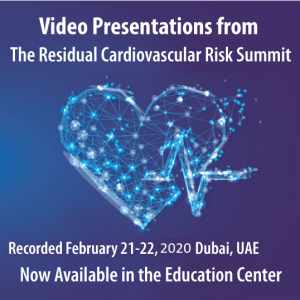
2020 Residual Cardiovascular Risk Summit
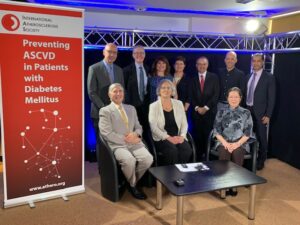
Preventing ASCVD in Patients with Diabetes
A 7 Part Video Series: This program, recorded in September 2019, features a elite global faculty as the provide a staged topic approach. (Non Accredited)
GLOBAL THOUGHT LEADERS
The IAS GLOBAL FACULTY
All of our content is created in conjunction with an independent faculty from leading global institutions.
Click the button below to find out more about each faculty member contributing to the IAS Education Center (IASEC).
